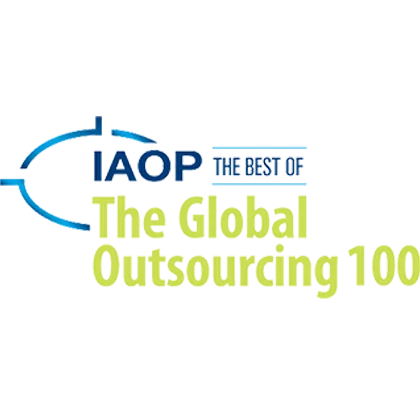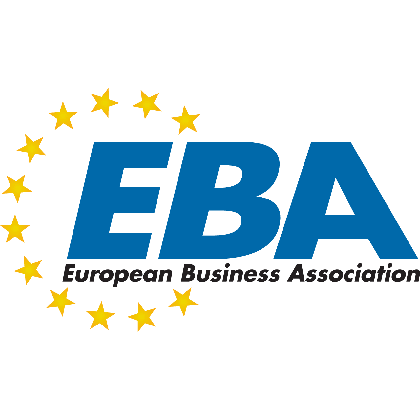90% of startups fail – that’s a harsh fact startup founders must remember. Even the most promising projects shut down before reaching seed funding, and only a small percentage of innovators manage to walk between the raindrops without getting wet.
So, what’s the secret formula of startup race winners like ByteDance, OpenAI, or Grammarly? Certainly, we should not deny that there is a luck factor when the right idea emerges at the right time in the right place, but let’s be real: luck is not enough. Modern consumers, raised in a product-oversaturated world, aren’t inclined to forgive mistakes. The same applies to investors – having a great high concept won’t attract investments if you don’t have a strong strategic vision and relevant expertise to showcase.
However, founders need to remember another fact: you aren’t the first people on the planet Earth facing these challenges. There are allies you can bring to your side to enhance your project, and an MVP development company like Program-Ace is one of the most powerful partners you can get. Let us back up this statement with the article we prepared to guide founders through the main startup challenges.
Understanding the Startup Landscape

The startup world is dynamic and challenging, with vast opportunities and equally significant risks. To put this into perspective, consider the global tech industry's staggering value of around $5.3 trillion. This figure not only represents the immense potential for innovative startups but also underscores the competitive nature of the industry.
The rise of unicorns – startups valued at over $1 billion – is particularly noteworthy. Recent data shows 1,486 unicorns worldwide, with a combined total raised capital of $900 billion, culminating in an impressive total value of $5 trillion.
Reaching this status might be the ultimate goal of every startup founder, but the path to becoming a unicorn or even a sustainable business is fraught with challenges. Critical hurdles include intense competition, flawed business models, and legal challenges. Industry insights show these challenges often lead to startup failure.
Moreover, the tech industry's rapid evolution demands agility and speed in product development. 42% of innovations fail due to prolonged development times, emphasizing the need for startups to be swift and efficient in bringing their products to market.
This is only a brief view of the startup ecosystem's struggles. However, don’t let this fact discourage you: every difficulty can transform into an opportunity if approached with experience and a sharp eye.
Common Challenges Startups Encounter
Through our extensive work with startups at Program-Ace, we have identified major challenges that these new ventures frequently encounter. Understanding these obstacles and assessing their relevance for your startup will make your decision-making more conscious and experience-driven.
Market Fit and Validation
Many startups struggle to develop a product that truly meets market needs. For instance, a startup might invest heavily in an innovative app only to realize that the audience doesn’t have an unmet need or use other solutions to fulfill it. This misalignment can lead to significant financial losses or, as we mentioned, even to venture shutdown.
Budget Constraints
Startups often operate with limited budgets, making every investment decision critical. A common example is a startup that allocates too much funding to product development without setting aside enough for marketing, leading to a great product with zero brand awareness and traffic.
Time Management and Deadlines
Time is a scarce resource in startups. A common scenario is a team spending too much time perfecting a feature, causing delays in the overall product launch, which can be detrimental in a fast-paced market.
Technical Challenges and Scalability
Startups may face technical issues, especially when scaling up. For example, a startup's platform might work well for a few hundred users but becomes unstable when user numbers grow, impacting customer satisfaction and retention.
Talent Acquisition and Team Building
Finding the right talent is another significant challenge. A startup might struggle to attract skilled professionals due to competition or budget limitations, leading to a slower development process or subpar product quality.
Regulatory Compliance and Legal Issues
Navigating the legal landscape can be daunting, but startups can’t avoid this step. A venture unaware of certain data privacy regulations might inadvertently violate laws, leading to legal complications and loss of consumer trust.
Customer Acquisition and Retention
Acquiring and retaining customers is another difficult process. A startup might have an innovative product but lacks a clear strategy for attracting and keeping customers, leading to low sales and high churn rates.
Balancing Innovation with Feasibility
Startups need to innovate while also being practical. A startup might focus on a highly innovative but complex technology that is not yet feasible or cost-effective for widespread use and experience difficulties attracting investment or reaching a broader market.
Why Do Startups Need MVP?
The horror dream of every startup founder: launching a product you've spent years perfecting, only to discover that it doesn't meet market needs. This scenario is more common than you might think. In fact, a lack of market need is one of the primary reasons for startup failure. This stark reality underscores the critical importance of the MVP (Minimum Viable Product) approach in the startup world.
An MVP is the most basic product version that can be released to the market. It has enough features to satisfy early customers and provides a platform for future product development based on real-world feedback. The MVP approach is akin to a scientific experiment – it tests hypotheses and adapts based on evidence.
Think of building a product like constructing a bridge. You could spend years building a grand, elaborate bridge only to find it leads to the wrong destination. An MVP, on the other hand, is like constructing a temporary footbridge first. It's quicker and less expensive to build, allowing you to test the waters and ensuring you're heading in the right direction before committing to the full construction.
MVP's true value is in its ability to address most challenges startups face at the beginning of their journey. Here is how this power applies in practice:Rapid Market Validation. Startups often operate under tight budgets and timelines. An MVP allows for quick market entry to test if there's a real demand for the product, addressing the critical issue of market need.
Minimized Development Costs. Developing a full-featured product without validating the concept can lead to significant financial losses. An MVP focuses on core functionalities, reducing initial development costs.
Feedback-Driven Improvements. Early user feedback is gold in product development. An MVP provides a real-world testing ground, enabling startups to iterate based on actual user responses, not assumptions.
Attracting Early Adopters and Investors. An MVP can generate early interest from potential customers and investors. Even in its simplest form, demonstrating a tangible product can be more persuasive than a concept or prototype.
Resource Optimization. For startups, developing an MVP means allocating time, talent, and money more efficiently, avoiding the over-extension associated with broader product development.
Reducing Time to Market: Being first can be a significant advantage, especially in industries with fierce competition, and an MVP enables a quicker launch, helping startups stay ahead of rivals.
Adaptability to Market Changes. Every industry that is powered by tech evolves rapidly. An MVP allows startups to remain flexible and adapt their products to changing market trends and consumer preferences without losing resources.
Consider MVP development a startup cheat code. It can become a powerful start setting you up for continuous success, but you need to get a backup from a strong MVP development company.
How an MVP Development Company Can Help Startups?
70% of mentored businesses survive five years or longer. Startups that survive this crucial period have much higher chances to expand their business, gain stability, or even transform into unicorns. An MVP development company might not be a mentor in its traditional meaning, but it still provides insightful guidance, helping a startup avoid major pitfalls and enhancing its capability with deep expertise. What can an MVP development company give?
1. Expertise in MVP Development. MVP development companies specialize in building products that are lean yet effective. They bring a wealth of experience in identifying the core features that deliver the most value to users. This expertise is crucial in avoiding common missteps such as feature creep, where too many features dilute the product's focus and delay its launch. For instance, a startup might have an innovative idea but lack the technical know-how to execute it efficiently. An MVP development company can turn this idea into a viable product, ensuring it's both technically sound and market-ready.
2. Effective Resource Management. Startups often face constraints in terms of budget and human resources. An MVP development company helps optimize these limited resources, provide necessary specialists, or develop necessary parts of the product itself. Instead of hiring a full in-house team, a startup can collaborate with an MVP development company to access a diverse pool of skills and expertise, which is more cost-effective and efficient.
3. Strategic Guidance. Beyond just development, MVP development companies provide strategic guidance. They help startups understand the market landscape, customer needs, and the competitive environment. This strategic input is vital for startups to make informed decisions about their product and business strategies. For instance, a startup might have a vision for its product, but an MVP development company can help refine it, align it with market demands, and set realistic, achievable goals.
Achieving Success with MVPs
Measuring Success Criteria
The first step in this journey is to measure the success of the MVP against specific criteria. These metrics not only provide insights into the current performance of the MVP but also guide future development and scaling strategies. Here's an overview of the critical success criteria.
| User Engagement Metrics | |
| Active Users | The number of unique users who engage with the product over a specific period. |
| User Retention Rate | The percentage of users who continue to use the product over time, indicating its stickiness and value. |
| Time Spent | The average duration users spend on the product, reflecting user interest and engagement levels. |
| Conversion Rates | The percentage of users who take a desired action, like signing up or making a purchase, indicating the product's effectiveness in driving user actions. | User Feedback and Satisfaction |
| Net Promoter Score (NPS) | A metric that measures customer loyalty and satisfaction based on their likelihood to recommend the product to others. |
| Customer Satisfaction Score (CSAT) | A measure of how satisfied customers are with the product, typically obtained through surveys. |
| Product Performance Metrics | |
| Load Time and Performance | The speed at which the product loads and operates, impacting user experience. |
| Error Rates and Bug Fixes | The frequency of errors or bugs encountered by users, and the efficiency of resolving these issues. |
| System Uptime and Availability | The percentage of time the product is operational and available to users, indicating reliability. |
| Business Metrics | |
| Return on Investment (ROI) | The financial return on the investments made in the product, indicating its profitability. |
| Customer Acquisition Cost (CAC) | The total cost of acquiring a new customer, helping to assess the efficiency of marketing efforts. |
| Lifetime Value of a Customer (LTV) | The total cost of acquiring a new customer, helping to assess the efficiency of marketing efforts. |
| Market Metrics | |
| Market Penetration | The extent to which a product is recognized and used in the target market. |
| User Growth Rate | The rate at which the user base is expanding, indicating market acceptance and growth potential. |
Establishing target values for your MVP's success criteria is the next step. These targets act as benchmarks, helping you understand where you are and what you need to achieve. Here's a guide on how to set these target values:
- Understand Industry Benchmarks. Research industry standards and benchmarks for startups similar to yours. This will give you a realistic idea of what to aim for. For example, if the average user retention rate in your industry is 30% after the first month, this could be a starting point for your own targets.
- Analyze Competitor Performance. Look at the performance metrics of direct competitors. Understanding their strengths and weaknesses can help you set targets that are ambitious yet achievable.
- Evaluate Your Current Performance. If your startup is already operational, assess your current metrics. This assessment will help you understand the actual state of affairs and set realistic targets that won’t overwhelm your team.
- Consider Your Business Model and Goals. Your targets should align with your overall business model and long-term goals. For instance, if your primary goal is rapid user growth, you might set more aggressive targets for user acquisition and market penetration.
- Set SMART Criteria: Ensure your targets are Specific, Measurable, Achievable, Relevant, and Time-bound. For example, instead of setting a vague goal like “improve user retention,” set a specific target like “increase user retention rate by 15% within the next six months.”
- Involve Your Team. Engage with your team when setting these targets. Their insights can provide a more comprehensive view of what's achievable and can help ensure everyone is aligned and committed to these goals.
- Be Prepared to Adjust. The startup environment is dynamic, and it's essential to be flexible. Regularly review your targets and be prepared to adjust them based on new data, market changes, or shifts in your business strategy.
- Use Data-Driven Decision-Making. Leverage data analytics tools to track your performance against these targets. This approach will help you make informed decisions and pivot your strategies.
Scaling the Startup Based on MVP Results
This process of scaling the startup begins with a thorough analysis of feedback and data gathered from the MVP phase. It's essential to delve into qualitative and quantitative user feedback to understand what resonates with your audience. This analysis helps identify which features are most valued and which areas require improvement.
The next step is refining the product. This involves enhancing key features that have received positive feedback and improving the overall user experience to boost engagement. Addressing any technical issues is also crucial at this stage to ensure the product is stable and reliable for a growing user base.
As you plan for scaling, developing a detailed roadmap is vital. This roadmap should encompass not just the technical aspects of scaling up but also strategies for marketing and team expansion. Securing additional funding might be necessary to support this growth, especially if the MVP phase has shown promising results. Expanding the team strategically to manage increased demands and new challenges is also a key part of this phase.
Expanding the market reach is another critical aspect of scaling. This involves implementing more aggressive marketing strategies to attract a wider audience and exploring new geographical and demographical markets. Forming strategic partnerships can also play a significant role in expanding reach and adding value to your product.
Scaling is not a one-time effort but a continuous cycle of improvement and adaptation. Regularly updating the product based on ongoing user feedback and staying abreast of market trends are essential to remain competitive. Regularly evaluating and adjusting your scaling strategy ensures the startup remains agile and responsive to market needs.
The Long-Term Vision After the MVP
Post-MVP, a startup needs to focus on a long-term vision, emphasizing market evolution. This phase involves setting clear, achievable long-term goals, such as market expansion, product diversification, or revenue targets.
Diversifying the product line is also essential. As the startup grows, exploring complementary products or services can open new revenue streams and reduce market risks. This diversification should leverage the startup's strengths and market position.
Sustainable growth strategies are vital. Growth should be strategic and well-planned, focusing on building a robust foundation to adapt to market changes. This includes making informed decisions about scaling operations, marketing, and partnerships.
Lastly, maintaining a strong company culture is essential. As the startup expands, preserving the core values and ethos that fueled its early days is crucial for guiding decision-making and attracting like-minded talent.How to Choose the Right MVP Development Company?
As you can see, an MVP development company can give you a strong start, but only the true experts will supercharge you for success. Follow these steps when selecting your partner:
1. Assess Technical Expertise and Experience
Choose a company with a proven track record in developing MVPs, especially in your industry or technology sector. Ensure they have the technical skills and resources necessary to build your MVP. This includes familiarity with the latest technologies and development methodologies.
2. Consider Their Approach to MVP Development
A good MVP development company should have a clear and efficient development process, which includes agile methodologies, rapid prototyping, and iterative development. They also should be flexible and adaptable, willing to adjust their approach based on your specific needs and feedback.
3. Evaluate Their Understanding of Your Business
The ideal partner should understand not just the technical aspects but also the business implications of your MVP. They should be able to offer insights on market fit, user experience, and potential scalability. Choose a company that shows genuine interest in your project and is committed to helping you achieve your long-term goals.
4. Review Their Past Record
Review their portfolio to gauge the quality and diversity of their work. Look for projects similar to yours in scope and complexity. Client testimonials and case studies can also provide valuable insights into the company’s working style, reliability, and the success of their previous projects.
5. Discuss Communication and Collaboration
Effective communication is key to a successful partnership. Ensure the company has clear communication channels and is responsive to your queries and concerns. The company should be collaborative, involving you in the development process and keeping you informed at every stage.
6. Consider Pricing and Contract Terms
Understand their pricing structure and ensure it aligns with your budget. Be wary of hidden costs. Pay close attention to the contract terms, including intellectual property rights, confidentiality, and post-development support.
7. Assess Cultural Fit
A good cultural fit ensures a smoother working relationship. Assess whether their company culture aligns with your startup’s values and working style.
By carefully evaluating these aspects, startups can choose an MVP development company that has the technical capability to build their MVP and shares their vision and commitment to their project’s success. This partnership is crucial in turning an MVP into a viable, scalable product.
Entrust Your MVP Development to the Program-Ace's Specialists
Everything we described in this article you can find in the approach of Program-Ace, a custom software development company with three decades of experience. Our team is ready to help you develop an MVP that will place you on the map of the most prominent startups of the near future. Feel free to contact us today!













